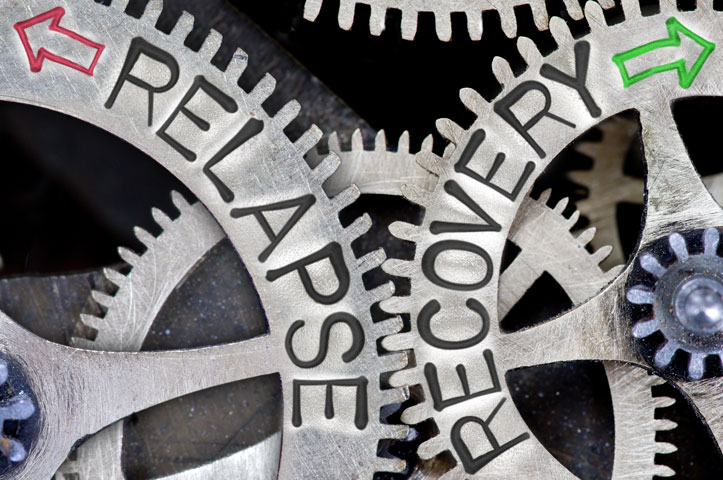The decision can happen in an instant or over years, but if you’ve decided to finally leave drugs or alcohol behind – it’s time to seek professional treatment. Professional treatment including detox comes with medical professionals and addiction experts that want to keep you healthy, safe, and comfortable over the tough transition to sobriety.
The good news is a detox facility can help you safely flush drugs and alcohol from your system and get you sober for the first time in years, but the bad news is detox doesn’t cure addiction. Let’s learn more about ‘curing’ addiction and why most people need more than just detox.
Addiction is Chronic and Progressive
If you’ve researched anything about addiction you’ve likely noticed two words that consistently pop up – chronic and progressive. Addiction is a difficult thing to fix partly because researchers are still trying to figure out why certain people become addicted and others don’t. There are many genetic, biological, and spiritual theories behind addiction, but researchers know with 100% certainty that addiction is chronic and progressive.
Let’s compare addiction to two other conditions – strep throat and diabetes. Strep throat is a simple illness. You take some antibiotics and after a few days you don’t have strep anymore. Diabetes is a lifelong illness that never goes away but is manageable if you do the right things. If a healthy diabetic suddenly stops eating healthy and exercising the symptoms of diabetes will return. If you do nothing to help your diabetes, the condition will only get worse.
Addiction is very similar to diabetes. The condition gets worse (progressive) if not treated but even with treatment never fully goes away (chronic.) Someone who has not drank or used drugs for several years will not experience any symptoms from their addiction but can easily revert to their former condition and symptoms if they drink again. Both diabetes and addiction are chronic and progressive, but both are manageable if you take the right steps daily. A detox facility can help you with the initial mindset, education, and flush to beat addiction, but you must always watch it. Addiction never goes away.
There’s More to Treatment than Detox
When most think about treatment they imagine a detox facility. While proper detox undoubtedly helps addicts take the first steps in recovery there’s much more to treatment then detox alone. Let’s learn about other ways you can help yourself after detox.
Long-term Inpatient
Treatment residents go to detox until they’re medically cleared for other portions of treatment. Standard residential treatment can last anywhere from 2 to 4 but, you can stay longer than the standard. Many treatment centers offer long-term inpatient treatment, anywhere from a few months to a year, for the most tools to begin sobriety.
Intensive Outpatient
If you can’t do long-term inpatient treatment an intensive outpatient program (IOP) is the next best thing. You can only learn and grow so much from the 2-4-week education provided by a normal detox facility, but IOP provides additional help and resources during the struggles of early sobriety. IOP teaches you more about the disease of addiction, provides further resources on topics like relapse prevention, and provides additional accountability for those getting over the hump.
Sober Home
A sober home is a great stair step for addicts and alcoholics that aren’t ready to go straight from treatment into ‘the real world.’ Getting sober can change your life for the good and for the bad. It’s obviously good to quit drugs and alcohol but people getting sober for the first time in years can be overwhelmed with life’s daily stresses which will send them right back to using or drinking.
A sober home is a voluntary residential facility where residents aren’t allowed to use drugs or alcohol and must meet certain criteria to continue living there. A sober home may require you to attend 12-step meetings or to work or go to school 30 hours a week. Residents typically live in a sober home from a few months to a year until they’re ready to get back to life on life’s terms. Much like a prison’s halfway home a sober home provides a smooth transition from being an addict back into the real world for people who’ve been trapped behind the bars of addiction.
Other Lifetime Resources
Even if you’ve done detox, long-term inpatient treatment, intensive outpatient treatment, and lived in a sober home you still aren’t cured of your addiction. Again, addiction is like diabetes. You can enroll in a specialized diabetic treatment program and be better prepared to handle the disease, but it’s still there and will return if left untreated. Luckily there are resources that are free and available for continued healthy habits.
Group Meetings
You can’t beat addiction alone. As it’s put in the recovery community, “If you could get yourself sober you already would have.” You will need allies to battle addiction and many of those allies are found in group meetings like Alcoholics or Narcotics Anonymous. These groups were founded in part because the best way to stay sober yourself is by helping others stay sober. That same friendship and fellowship that proved successful for 12-step meetings in the mid-20th century is still successful today.
Online Resources
Addicts in the digital age have many more resources compared to addicts a couple of decades back. There are countless online resources on daily readings, group forums, education, and more to help keep you on track after a detox facility. You can even attend online 12-step meetings. If you’re reading this, you can access these resources- take advantage of them!
Happy and Free
Addiction is a lifelong battle and most people need more than a stay at a detox facility. Consider continuing education through extra treatment, the benefits of a sober home, and always keep up the fight with other resources for your best chance at a lifetime of sobriety. Addiction will always be with you but that doesn’t mean you can’t live a full and happy life.







